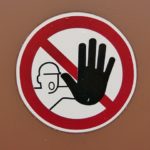Much has been said about the copyright industry and their alleged attempts to stop piracy. Or is it more about making as much money as possible, no matter the methods? Decide for yourself…
Apart from warning letters, the pay-up-or-else scheme has gained by far the most publicity. Notorious for demanding (or “extorting”, as some say) hundreds to thousands of dollars from unsuspecting users to “do penance” and avoid being sued, they remain a mysterious threat for many out there. How do “they” track your downloading and get your personal information?
Setting the record straight: How does this rip-off work?
1. The order is given out by the rightholder of a certain piece of media to make some $$$ from unsuspecting downloaders. Usually, a company specialized in this matter will take the job.
2. Certainly torrents allegedly containing copyrighted content (more on this later) are being selected.
3. At this point, the nerds come into play. Using a program specifically designed to log downloaders (usually a modified version of Vuze, a popular torrent client), the company connects to the swarm and mimics a regular user. What the other, unsuspecting file sharers don’t know: In the very instant they connect to the seemingly friendly comrade, their IP is being protocolled, along with date and time of their activity.
4. The log is analyzed and the user lists are sorted by country, provider, and a few other factors.
With this information, the company gives over the case to a law firm, which then files a huge number of lawsuits at the district court, usually a few dozens to several hundred per batch.
5. Your ISP is ordered to give out the name and address of the alleged offender – you, for example.
A few weeks later you’ll receive a not-so-friendly letter, saying something like this…
“Look, we caught you red-handed. The proof is right on our desk, and usually we’d sue your ass off and get you fined so high you’ll never see the light of day in your life ever again.
But hold it… you’re in luck! We’re not bad guys, and would like to settle this nice and easy for the both of us. You have 10 days to pay us [insert grossly exaggerated sum here] and reply to this letter, admitting your guilt and vowing to never, ever do it again, or you’ll regret it.”
(Scan by acsbore.wordpress.com)
Shocked and in fear of a lawsuit against you, you pay them the few hundred bucks requested… and never touch a torrent again.
And even though you have this strange feeling in your gut that something, something you can’t put your finger on is wrong about all this, you have no idea what to do about all this. And your certainly right, because their precious “evidence” is often fraudulent or, at the very least, extremely sketchy. Their “ingenious” software often has a few, teeny-tiny problems…
Three glaring issued with their “evidence”

Number 1: It sometimes doesn’t produce actual proof of any illegal activity on your part!
Think about it: Is the fact that you were active on the torrent network real proof that you downloaded or uploaded anything? Logically, evidence that holds up in court should be a bit more solid than a simple IP number being printed on paper, along with the claim that “copyright infringement” happened.
Sadly, a lot of judges are as technically inept as someone from the middle ages. And after getting bombarded with loads of technical slang they often, impressed by the seemingly persuasive arguments, allow these shaddy, self proclaimed Internet sheriffs to proceed with their scheme.
Number 2: Cases are known in which lawsuits were filed for perfectly legal downloads.
Yup, this actually happened several times. Apparently, someone added a few torrents to their tracking list without looking too closely, resulting in sleepless nights for a lot of unlucky, fellow Internet users. And a lot of them paid the fine anyway, because who wants to mess with guys having fancy lawyers and using big words like “copyright infringement” or “patented and court-approved surveillance software”?
Number 3: Just a few seconds can make the difference between you and a completely other person having the same IP.
Most people don’t know that IPs are mostly given out dynamically by their provider, and get reassigned when the user goes offline again. Now, imagine the following scenario:
A complete stranger which happens to use the same ISP as you downloads a torrent. The surveillance software logs him but gets the time stamp wrong by just a few seconds. In this very instant he suddely turns off his computer, and you fire up your laptop and start surfing.
Several weeks later you get a letter for illegal file sharing and wonder how the hell that happened. Well, simple: Your provider gave out the wrong information and instead of catching the real culprit, you are wrongfully accused. How very unfortunate…
Our conclusion:
No idea what you think about all this, but for sure this is not how a nation of law should handle these issues. The second a nation allows such sketchy evidence to be used to legally extort huge fines out of its citizens, it puts its core values at risk. It is time these practices are outlawed; in the meantime everyone using either file sharing, streaming or any other kind of downloading should take measures to avoid being tracked at all.
End these Wild West manners and restore the faith in the democratic values, dear governments. It is time. Now.




